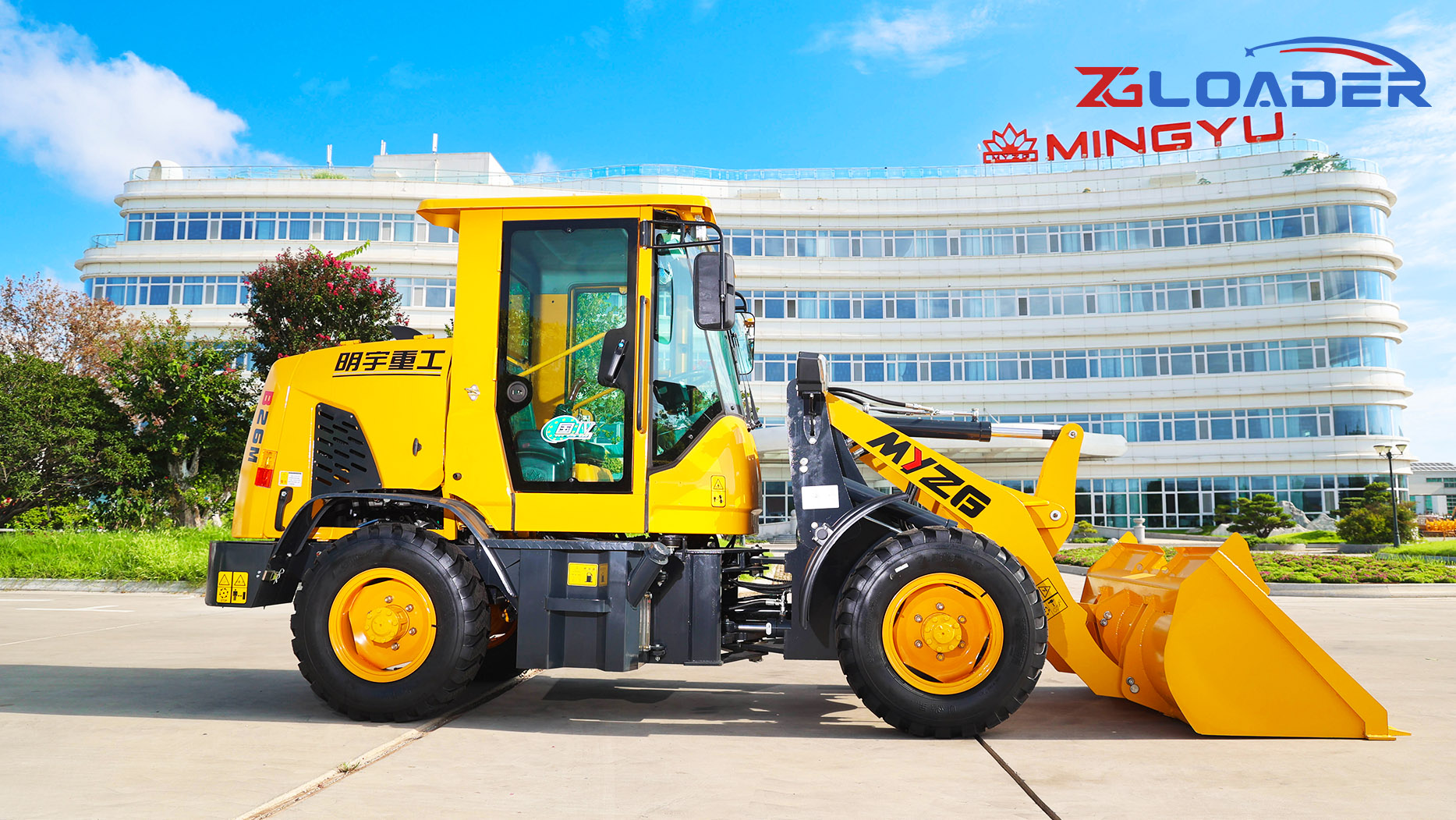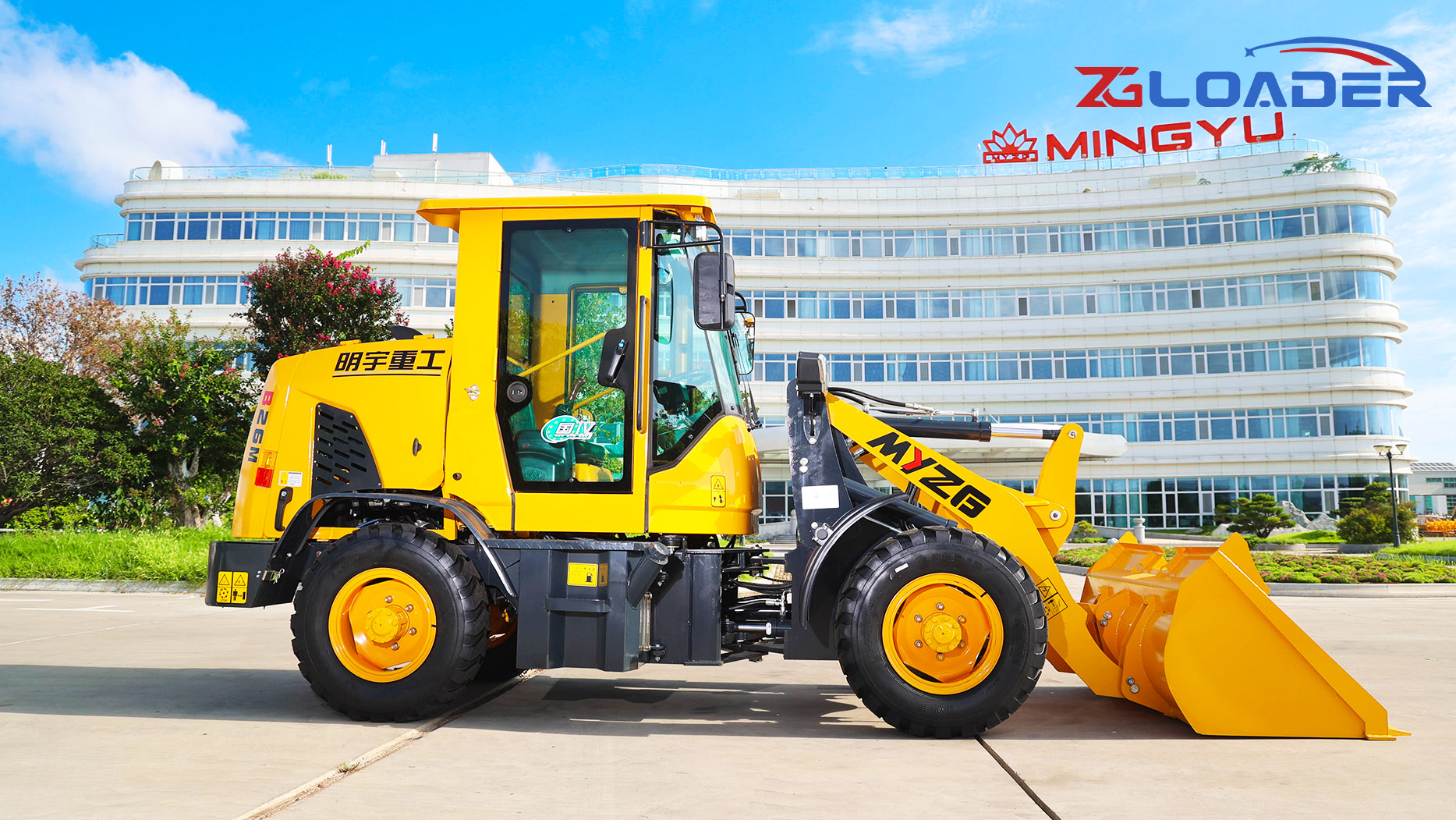Follow and subscribe to check tips about wheel loaders and forklifts everyday! Distributors recruiting worldwide. Contact me for more info. Selena: +8613176910558
Five Misunderstandings of Wheel Loader Operation
Wheel loaders are powerful and versatile machines crucial for construction, mining, and material handling. However, their operation requires skill and understanding. Misconceptions about their capabilities and limitations can lead to inefficiencies, safety hazards, and costly equipment damage. This article will explore five common misunderstandings regarding wheel loader operation: 1. "More Power is Always Better" While powerful engines are essential for heavy lifting and tough terrain, excessive horsepower is not always beneficial. Increased Fuel Consumption: Higher horsepower engines consume more fuel, significantly increasing operating costs. Increased Maintenance: More powerful engines generally require more frequent and expensive maintenance. Reduced Maneuverability: In tight spaces, excessive power can make the machine difficult to control and increase the risk of accidents. Unnecessary Wear and Tear: Constant operation at high RPMs can accelerate wear and tear on engine components.Selecting the right engine size for the specific application is crucial. Consider the typical loads, terrain conditions, and required cycle times. A well-matched engine will provide sufficient power while optimizing fuel efficiency and minimizing maintenance costs.
2. "Overloading is Acceptable" Overloading a wheel loader is a common and dangerous practice. Equipment Damage: Exceeding the load capacity can cause severe damage to the machine's frame, tires, hydraulic system, and other components. Stability Issues: Overloaded machines are more prone to tipping, especially when operating on slopes or uneven ground. Reduced Maneuverability: Overloading can significantly reduce the machine's maneuverability and increase the risk of accidents. Safety Hazards: Overloaded machines pose a serious safety hazard to operators and other personnel on the job site. Always adhere to the manufacturer's recommended load limits. If the load is too heavy, consider breaking it down into smaller, more manageable portions. 3. "Speed is Always Priority" While speed can improve productivity in some situations, excessive speed can be detrimental. Reduced Stability: High speeds can compromise the machine's stability, especially during turns and on uneven terrain. Increased Tire Wear: Excessive speed accelerates tire wear, leading to premature tire replacement and increased operating costs. Increased Fuel Consumption: High speeds generally require more fuel, increasing operating costs. Reduced Control: At high speeds, it becomes more difficult to control the machine and react quickly to unexpected situations. Maintain a safe and appropriate speed for the given conditions. Adjust speed based on factors such as load weight, terrain, and visibility. 4. "Ignoring Maintenance is Acceptable" Proper maintenance is crucial for the safe and efficient operation of any heavy equipment, including wheel loaders. Reduced Performance: Neglecting maintenance can lead to decreased performance, reduced fuel efficiency, and increased downtime. Increased Repair Costs: Ignoring routine maintenance can lead to more serious problems that require costly repairs. Safety Hazards: Malfunctioning components can pose serious safety hazards to the operator and others on the job site. Reduced Equipment Lifespan: Poor maintenance practices can significantly shorten the lifespan of the wheel loader.Adhere to the manufacturer's recommended maintenance schedule. This typically includes regular fluid checks and replacements, filter replacements, and inspections of critical components.
5. "Operator Skill Doesn't Matter" Skilled operators are essential for maximizing productivity and minimizing risks. Inefficient Operations: Inexperienced operators may not utilize the machine's capabilities effectively, leading to wasted time and fuel. Increased Wear and Tear: Improper operation can accelerate wear and tear on the machine's components. Safety Hazards: Inexperienced operators are more prone to accidents, such as tipping, collisions, and injuries. Reduced Equipment Lifespan: Improper operation can significantly shorten the lifespan of the wheel loader. Invest in comprehensive operator training programs. Ensure that operators are properly trained on the machine's controls, safety procedures, and best practices for efficient operation. Conclusion By understanding and addressing these common misunderstandings, operators and equipment managers can significantly improve the safety, efficiency, and longevity of their wheel loaders. Proper training, regular maintenance, and adherence to safe operating practices are crucial for maximizing the return on investment and minimizing the risks associated with wheel loader operation.
Post time:Apr.22.2021


